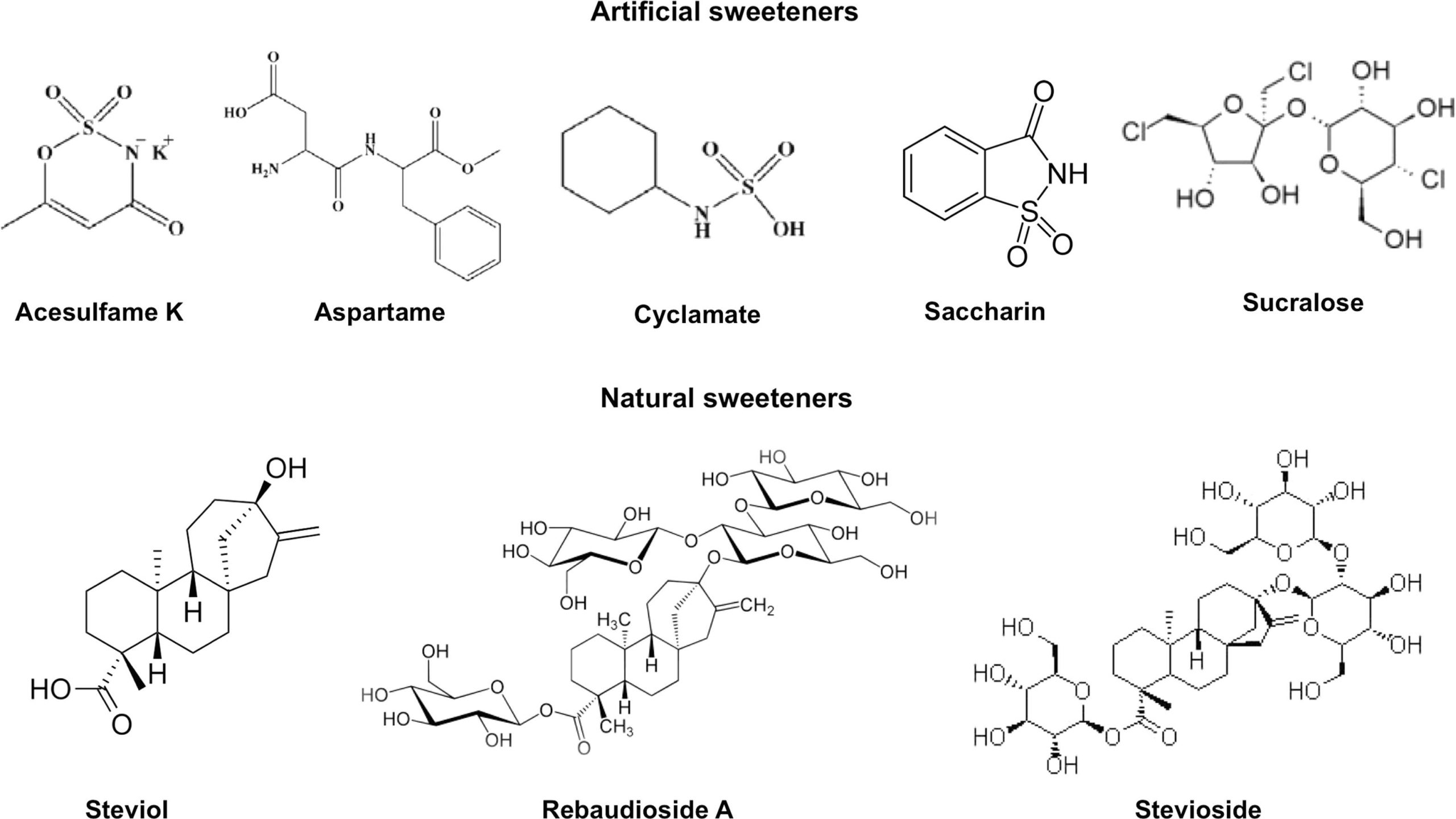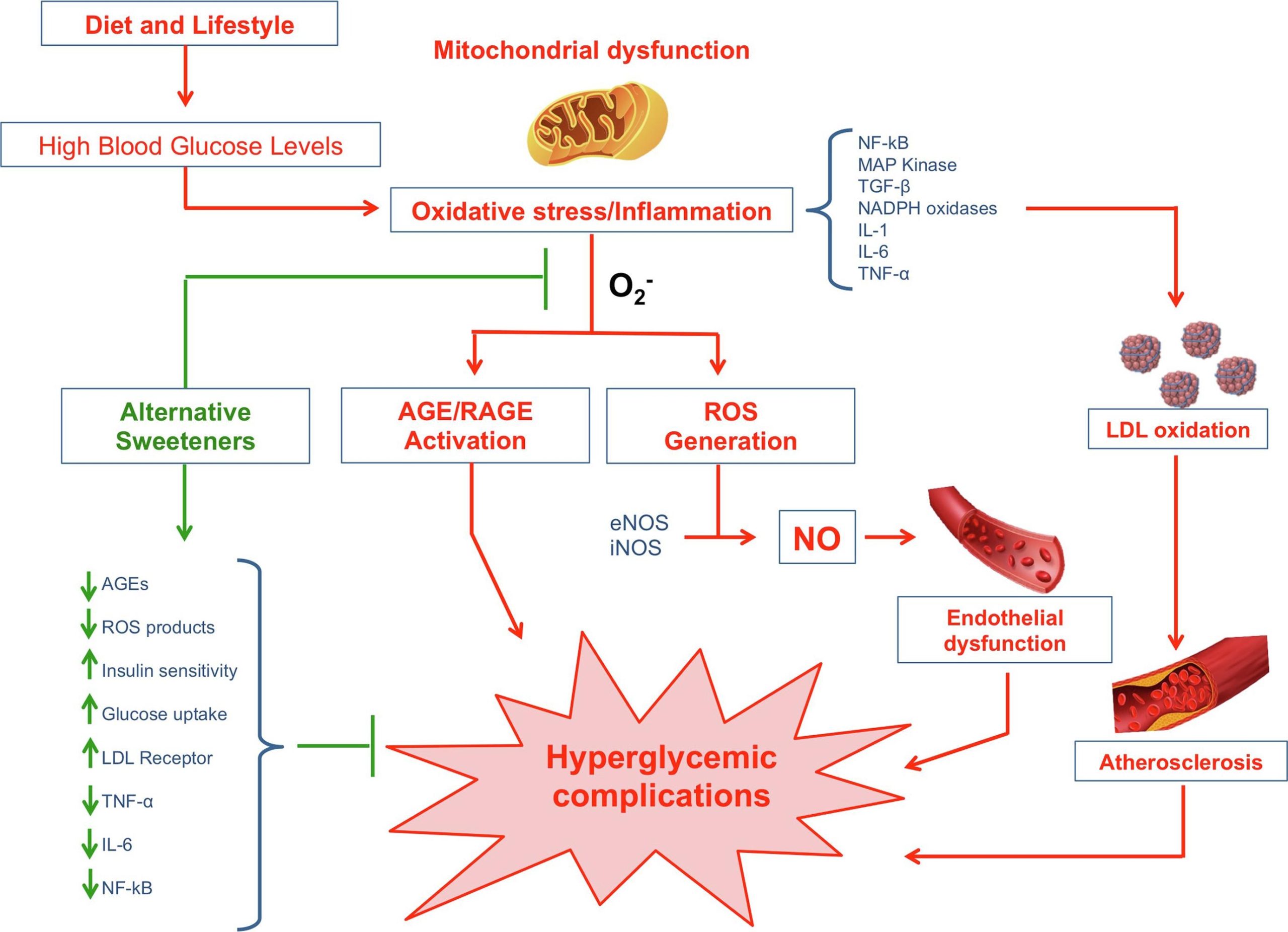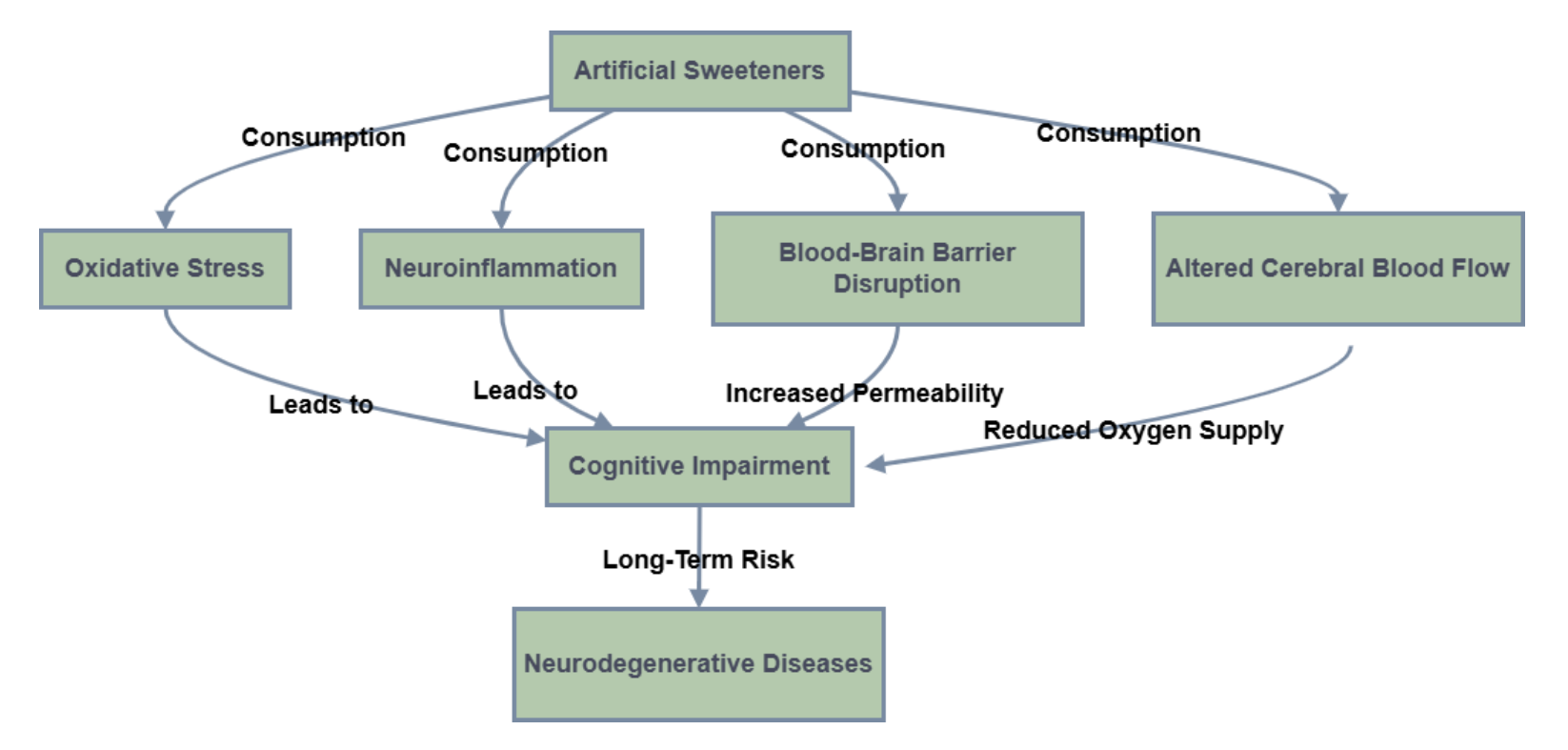Artificial sweeteners have become a popular alternative to sugar, promising the same sweetness without the added calories. From diet sodas to sugar-free desserts, these low- and no-calorie sweeteners are widely used by individuals aiming to manage weight, control blood sugar, or reduce sugar intake. While their short-term metabolic benefits are well-documented, emerging research is raising concerns about their long-term effects on brain health. Recent studies suggest that regular consumption of artificial sweeteners may be linked to cognitive decline, memory impairment, and neuroinflammation. In this article, we explore the mechanisms behind these effects, review the latest scientific evidence, and discuss what this means for individuals concerned about mental and metabolic health.
Join Weekly Health Newsletter
Every week, I will share with you information about Natural Health, Diet, Exercise, Yoga & Wellness.
ARTIFICIAL SWEETENERS
Artificial sweeteners are synthetic sugar substitutes that provide a sweet taste without the added calories of regular sugar. They are widely used in foods and beverages such as diet sodas, sugar-free desserts, and chewing gums to help reduce calorie intake and manage blood sugar levels. Common examples include aspartame, saccharin, sucralose, and stevia (a plant-derived natural sweetener often grouped with artificial ones).
These sweeteners are much sweeter than sugar, meaning only small amounts are needed to achieve the desired

sweetness. They are particularly beneficial for people with diabetes or those aiming to control weight. However, their long-term safety and health effects have been subjects of scientific debate, prompting ongoing research and regulatory monitoring.
But Why?
Artificial sweeteners were created as substitutes for sugar to address the increasing demand for low-calorie and diabetes-friendly alternatives. During the early 20th century, growing concern about health issues such as obesity, diabetes, and tooth decay encouraged the search for safer sweetening options that could provide sweetness without harmful effects. These substitutes were intended to help lower calorie consumption, support weight control, and maintain stable blood sugar levels. They also proved especially useful during periods of sugar scarcity—like World War I and II—when alternative sweeteners were needed for food manufacturing.
Are they sweet?

Mechanism of Action
Non-nutritive sweeteners (NNSs) are not physiologically inert and can influence feeding and metabolism through various peripheral and central mechanisms. These mechanisms include actions on oral and extra-oral sweet taste receptors, effects on metabolic hormone secretion, cognitive processes like reward learning, memory, and taste perception, and gut microbiota.
ORAL MECHANISMS:
- Sweet taste perception begins in the oral cavity when sweet tastants bind to T1R2/T1R3 G-protein coupled receptors. NNSs bind with high affinity to these receptors, even at low concentrations, to elicit sweet taste.
- Prolonged NNS stimulation might increase sensory adaptation and reduce sweet taste sensitivity, potentially affecting the acceptability of both caloric and non-caloric sweeteners.
- In vitro studies suggest NNSs cause greater down-regulation of taste receptor subunits compared to caloric sweeteners, indicating that adaptation magnitude may depend on binding affinity or receptor interactions.
- Unlike caloric sweeteners, NNSs do not consistently produce cross-adaptation and can sometimes enhance the intensity of sweet stimuli, especially caloric ones.
- Early exposure to NNSs, such as acesulfame potassium (AceK) in maternal milk, has been shown to increase preference thresholds for saccharin and sucrose in adult mice, accompanied by changes in taste signal transduction proteins.
- Neuroimaging studies in heavy NNS users have revealed altered taste processing, including an inverse association between NNS use and brain responses (BOLD) in the amygdala and insula to sucrose.
EXTRA-ORAL MECHANISMS:
- Functional sweet taste receptors are present in various extra-oral tissues, including the brain, pancreas, and gut, where they are involved in metabolic processes like glucose sensing, satiety hormone secretion, and glycemic control.
- In vitro, both caloric and non-caloric sweeteners can stimulate the secretion of incretin hormones (GLP-1 and GIP) from enteroendocrine cells via a T1R3-dependent mechanism.
- Both natural and non-nutritive sweeteners increase the expression and membrane trafficking of glucose transporters SGLT-1 and GLUT2 through their actions on intestinal sweet taste receptors.
- Studies in mice have demonstrated that NNS administration increases SGLT-1- and GLUT2-dependent glucose absorption. However, some studies have not observed acute effects of NNS consumption on hormone secretion or glycemic excursion in naive rats.
EFFECTS OF ARTIFICIAL SWEETENERS

Alternative sweeteners and potential action mechanisms.
The potential mechanisms by which artificial sweeteners (AS) influence the development of type 2 diabetes (T2D) and cardiovascular complications are complex and multifactorial. By interacting with the sweet taste receptor family (T1R), artificial sweeteners can enhance insulin sensitivity, promote glucose uptake, and increase the expression of LDL receptors. Additionally, they may help reduce the formation of advanced glycation end products (AGEs), reactive oxygen species (ROS), and inflammatory mediators such as TNF-α, IL-6, and intracellular NF-κB.
However, overstimulation of the associated G protein pathways due to excessive intake of artificial sweeteners may have adverse effects.
This includes promoting weight gain, insulin resistance, increased intestinal permeability, and chronic inflammation, all of which contribute to the development of metabolic disorders and related comorbidities.
COGNITIVE DECLINE
An 8-Year Prospective Study was done to find out the "Association Between Consumption of Low- and No-Calorie Artificial Sweeteners and Cognitive Decline". It was published on 3rd September, 2025 and here's what it says :
Stats
- 12,772 participants
- Mean age 51.9 ± 9.0 years
- 54.8% women
- 43.2% Black/mixed race
- Mean consumption of LNCSs was 92.1 ± 90.1 mg/d.
Summary
Recent research has suggested a possible link between the consumption of certain low- and no-calorie sweeteners (LNCSs) — including aspartame, saccharin, acesulfame-K, erythritol, sorbitol, and xylitol — and accelerated cognitive decline. Higher intake of these sweeteners has been associated with a faster reduction in global cognitive performance, particularly affecting memory and verbal fluency. Participants consuming the highest amounts of combined LNCSs demonstrated a more rapid decline in verbal fluency and overall cognition in non-diabetic individuals, and a greater decline in memory and cognitive function among those with diabetes.
The most recent evidence, published in Neurology — the medical journal of the American Academy of Neurology, was supported by the Brazilian Ministry of Health, the Ministry of Science, Technology, and Innovation, and the National Council for Scientific and Technological Development.
It found that regular consumption of these sweeteners, including tagatose, was linked to declines in memory and overall cognitive ability equivalent to approximately 1.6 years of additional brain aging. These findings suggest that frequent intake of artificial and low-calorie sweeteners may have potential long-term implications for brain health.
Researchers found a link in people under 60 but not older than 60. Do note that, while the study found links, it does not prove that sweeteners cause cognitive decline.
"Correlation does not equal to Causation"
Similar Studies
While numerous animal studies have demonstrated a link between excessive sugar intake and impaired cognitive function, the precise effects of sugars on human cognition remained uncertain.
On 25th Dec, 2023, a systematic review and meta-analysis aimed to assess existing evidence, and the overall quality of research exploring the impact of free and added sugars on cognitive performance in healthy individuals.
Most cohort studies and eight of nine cross-sectional studies reported a significant positive association between higher added sugar consumption and an increased risk of cognitive decline. Conversely, four studies noted a lower risk of cognitive impairment among individuals consuming natural fructose-rich foods, such as fruits.
The majority of randomized controlled trials focused on the short-term effects of glucose on cognitive facilitation, emphasizing that optimal brain function depends on well-regulated blood glucose levels tailored to individual physiology. Overall, the findings underscore the potential harmful effects of excessive, long-term, or prenatal exposure to added sugars on cognitive health.
However, further research is still necessary to clarify the distinct roles of free and added sugars in influencing human cognition.
Mechanism

Effects of Artificial Sweeteners on Brain Health.
Dr. Arbind Kumar Choudhary, Associate Professor, Department of Physiology, All India Institute of Medical Science, Raebareli, Uttar Pradesh, India in his research suggests that artificial sweeteners such as aspartame, sucralose, and saccharin may contribute to oxidative stress and neuroinflammation, disrupt the integrity of the blood-brain barrier, and alter cerebral blood flow, potentially accelerating cognitive decline.
These sweeteners may also affect the gut microbiome, impairing the gut-brain axis and exacerbating neurocognitive issues. Individuals with metabolic conditions such as type 2 diabetes and obesity may be particularly vulnerable, facing an increased risk of cognitive impairment and neurodegenerative diseases.
While artificial sweeteners can provide short-term metabolic benefits, their potential long-term effects on brain health remain a concern. Given their widespread use in India amid rising rates of metabolic and neurodegenerative disorders, there is an urgent need for targeted research to evaluate their safety and long-term neurological impact.
REFERENCES
2021, 110220, ISSN 0963-9969, https://doi.org/10.1016/j.foodres.2021.110220.

0 comments